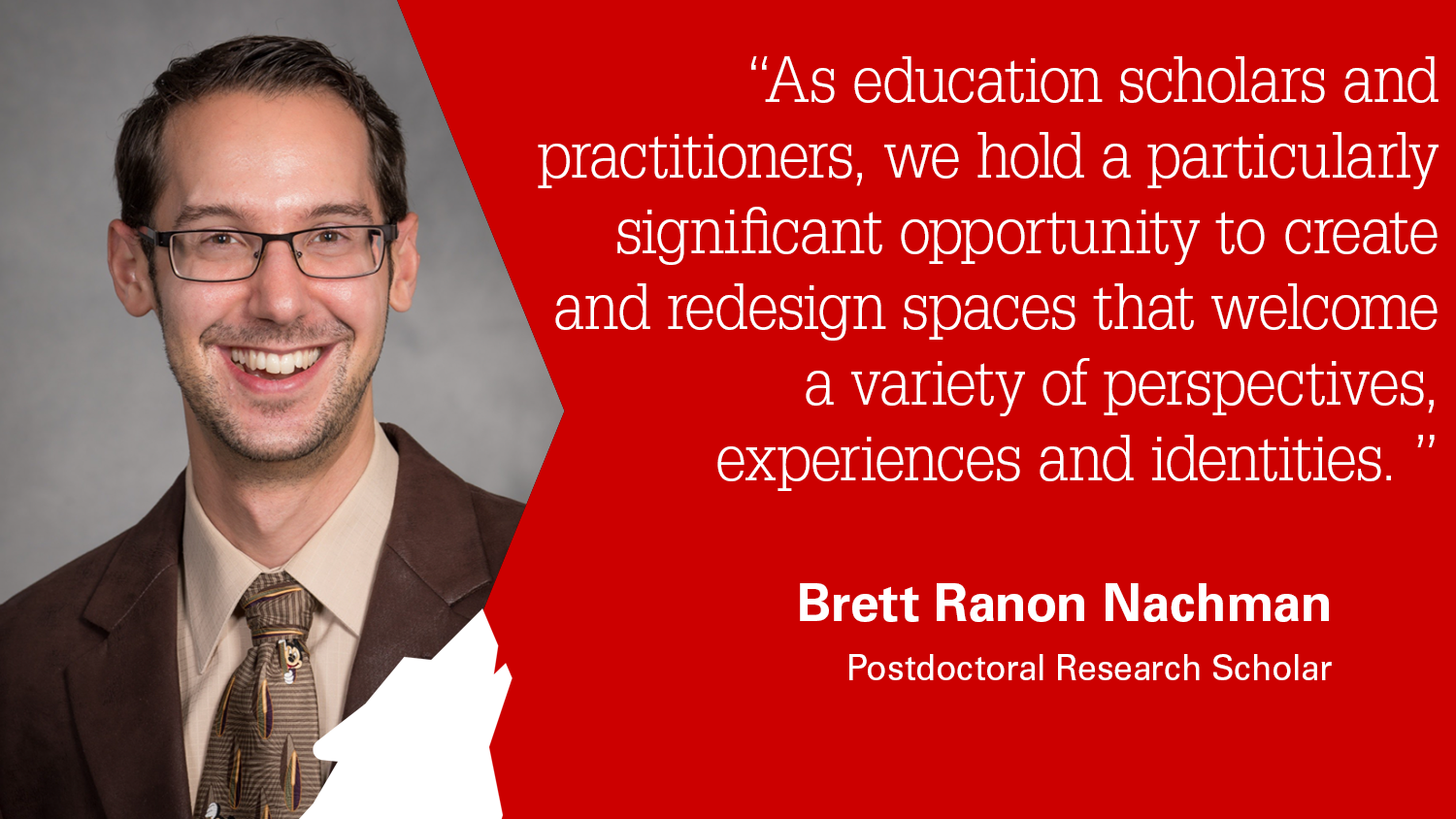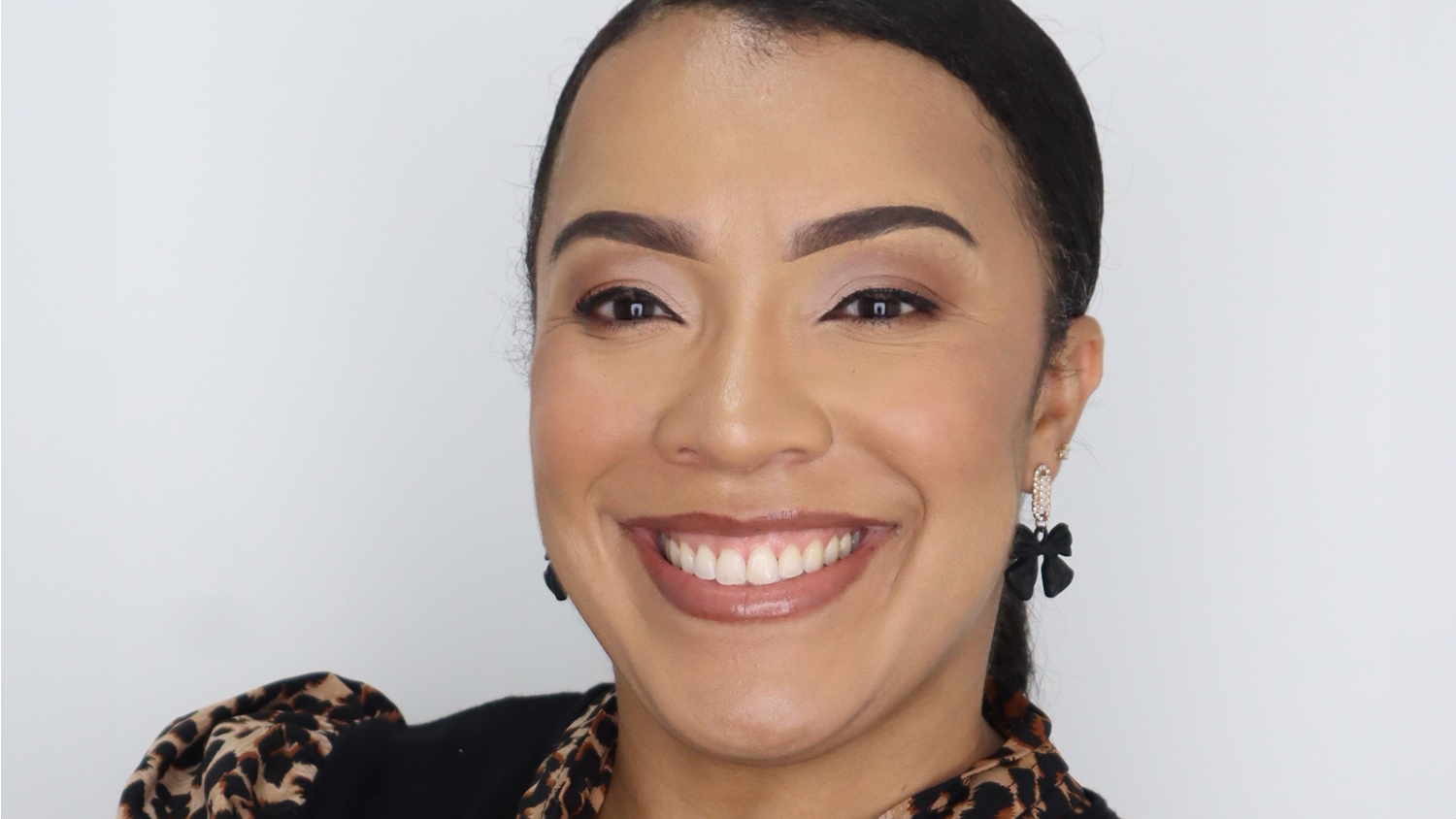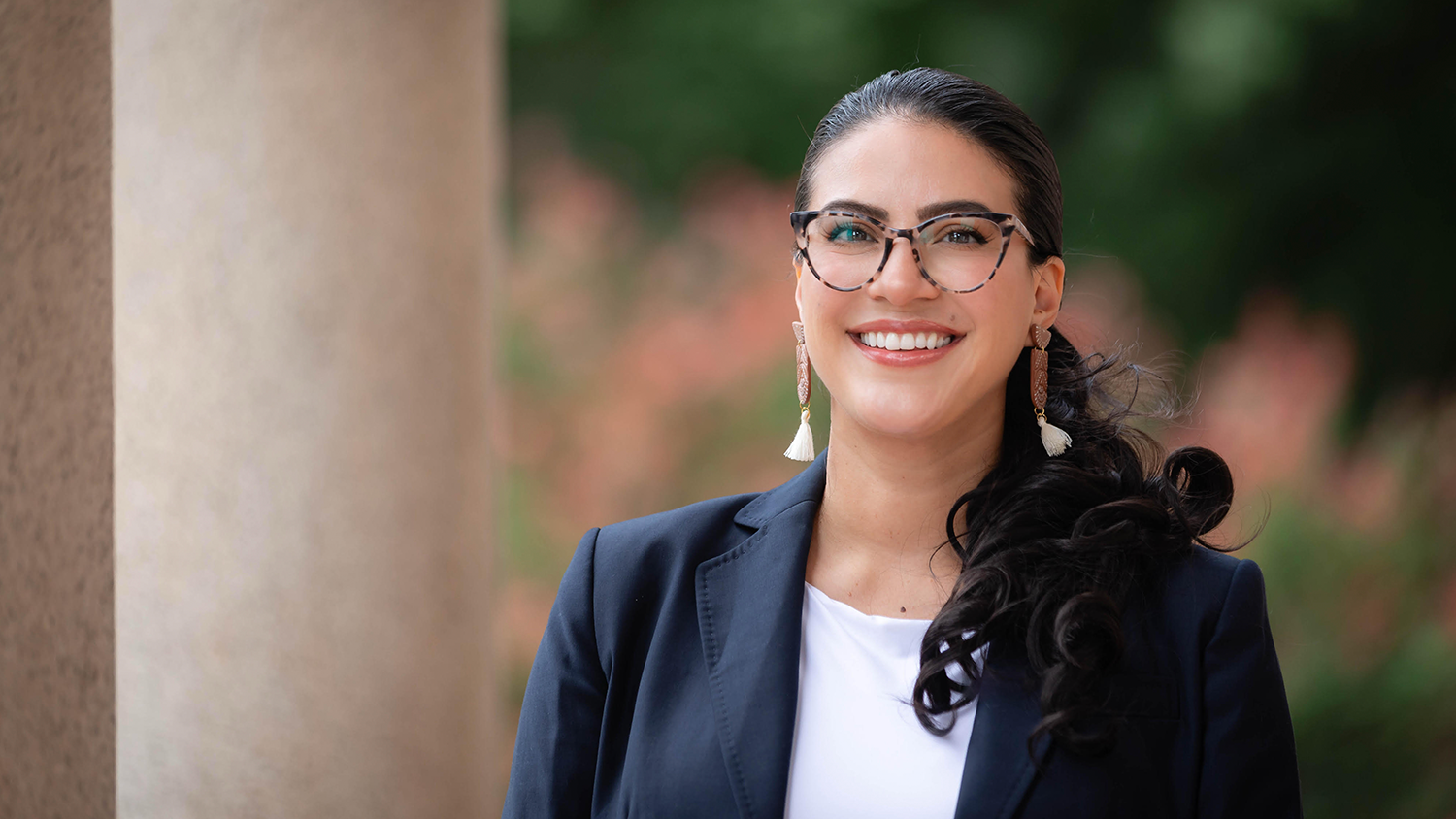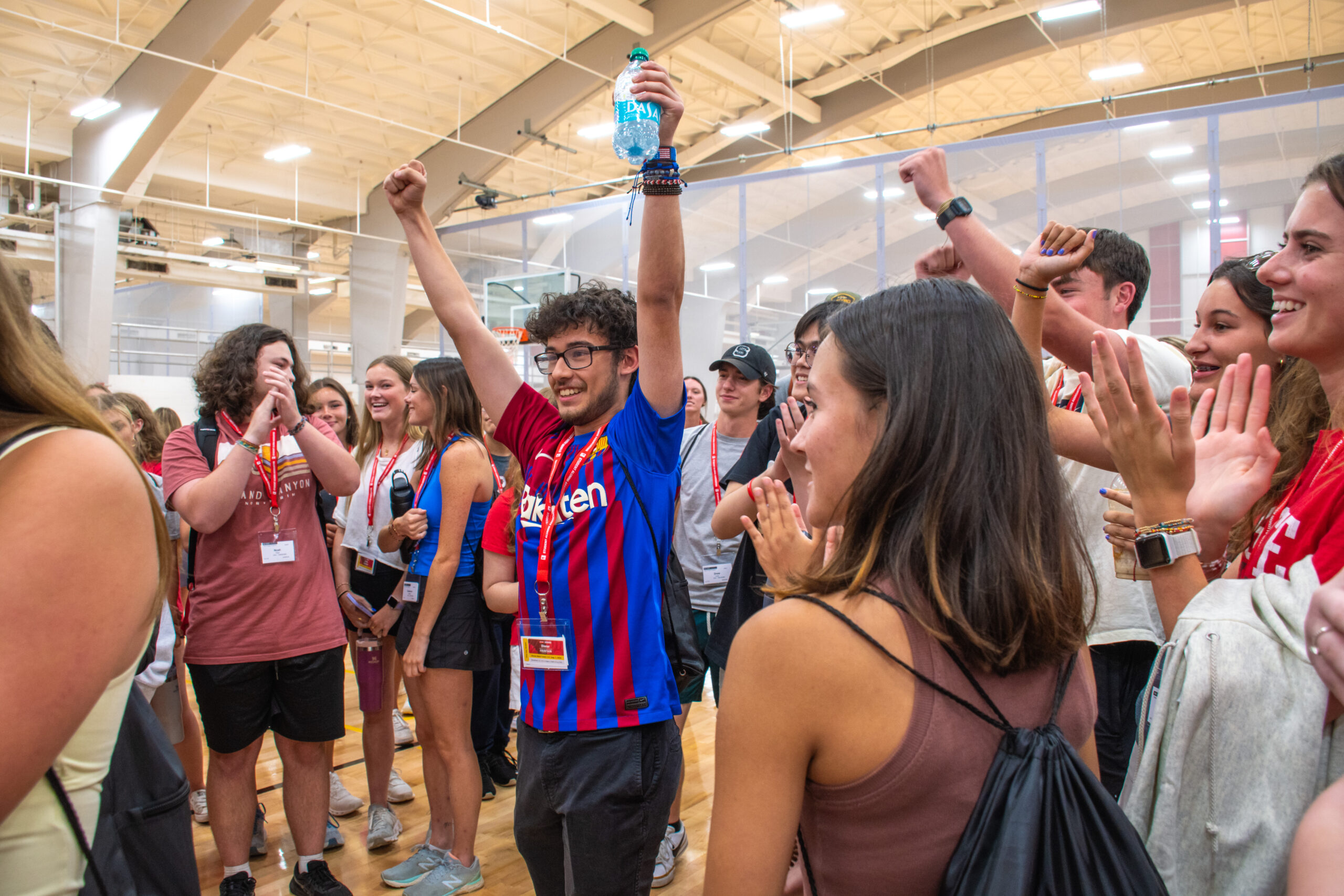Postdoctoral Scholar Brett Ranon Nachman is Advancing Diversity, Equity and Inclusion Through Scholarship on Autism in Higher Education

Brett Ranon Nachman believes education scholars and practitioners have a unique opportunity to redesign spaces for all perspectives and identities.
“What may appear equitable to one individual may not hold true for another,” Nachman said.
“I consider it a duty to continually listen, learn and reform my practice in shaping classrooms, orchestrating research endeavors and engaging in other endeavors that are inclusive to all.”
Nachman currently serves as a postdoctoral research scholar at the Belk Center for Community College Leadership and Research. He is also an autistic individual who conducts scholarship on autism in higher education. Through his experiences, he recognizes that not all academic spaces support the variety of ways that neurodivergent individuals process and communicate information.
“Given the absence of scholarship on autistic college students until recent years, it is my personal mission to bring their insights and experiences to the forefront of higher education scholars’ attention and acceptance,” Nachman said.
According to Nachman, individuals with autism are enrolling in higher education at a rapid rate, often into institutions that have not accounted for their needs and strengths.
“We need high-quality research and complementary educational efforts to enter various stakeholders’ awareness,” he said.
Nachman said that the retention and graduation rates of autistic college students are equally as important as their sense of belongingness and connectedness to communities that may bolster their success.
For the past five years, he has been involved with the College Autism Network, which started out as a nonprofit organization aimed at offering advocacy, research and training in supporting autistic college students. He currently serves as Director of Research, overseeing an international network of scholars, educators, counselors, administrators, self-advocates and community members. They host monthly webinars featuring emergent research on autism in higher education.
“Our community has cultivated many partnerships and projects, as well as formed a free database that my colleagues and I created, featuring an ever-growing list of autism-specific college support programs in the United States,” Nachman said.
Nachman has also contributed to organizing an annual College Autism Summit that gathers hundreds of people worldwide invested in learning from, working with and improving the experiences of autistic college students.
Nachman implements diversity, equity and inclusion into most projects he pursues. Most of his research has encompassed inquiries related to community college access and equity, autism in higher education and LGBTQ+ campus climate.
“I find that we must account for diversity, equity and inclusion across all aspects of our professional practice and be vulnerable enough to acknowledge our shortcomings with an openness to learn and unlearn information,” he said.
Right now, Nachman is working on producing manuscripts out of his dissertation centered on autistic college students’ pathways into and through community college. He has also authored and co-authored articles related to how community college students navigate transfer and make sense of their learning.
Nachman is also a 2021 ECMC Foundation Postsecondary CTE Research Fellow, a program dedicated to improving postsecondary career and technical education.
Nachman has some papers in the works on digital campus climate, and how these virtual spaces related to higher education can cultivate either comfort or distrust among minoritized student communities. More of his work can be found here.
This story was written by NC State College of Education doctoral student Jayla Moody.
- Categories:


